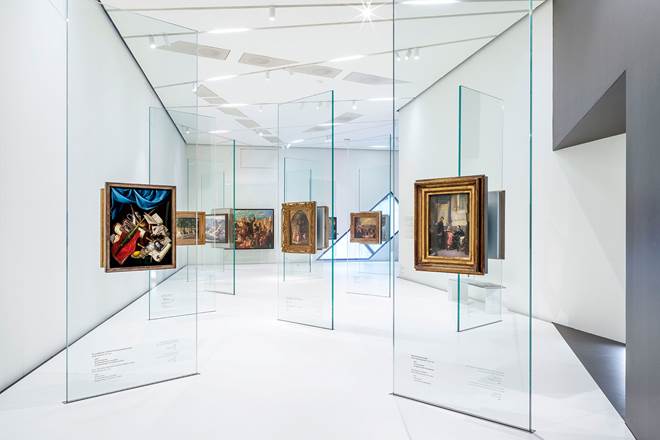As the capital of the largest economy in the European Union, Berlin is also home to some of the best museums, not just in Germany, but all of Europe, if not the world.
For train travelers, many of the best Berlin museums can be found just around the corner from Berlin Central Station in the city’s Mitte district.
So, where should you head first?
Image Credit and Location: Pergamon Museum, Berlin, Germany
Must see museums in Berlin
Museum Island
Museum Island, a UNESCO World Heritage Site, and a cultural treasure trove, is the picturesque island on the Spree River that houses a cluster of five world-class museums, including the Pergamon Museum, Neues Museum, Bode Museum, Alte Nationalgalerie, and Altes Museum.
Collectively, they feature an extensive collection of art, archaeology, and historical artifacts, offering a journey through human history and creativity, from Europe’s best Renaissance painters to the treasures of the ancient world. The island’s stunning architecture and rich exhibits make Museum Island a must-visit destination for art and history enthusiasts, providing a profound experience of Berlin’s cultural treasures.
Pergamon Museum
This is by far the most famous of the island’s five museums. It’s, in a sense, the museum of museums, as it has been recognized by UNESCO as having become a template for national museums around the world.
Today, its most famous exhibits are the treasures German archaeologists uncovered around the world from as early as the 19th century, including the Pergamon Altar, the Market Gate of Miletus, and the massive Ishtar Gate.
Please note: Pergamon Museum is temporarily closed due to major refurbishment as part of the “Museumsinsel Master Plan” and is only expected to fully reopen in the mid-2030s. Some of the museum’s collections remain on view at Pergamon Museum – The Panorama, located across from Museum Island.
Image Credit and Location: Jewish Museum Berlin, Berlin, Germany
Jewish Museum Berlin
Designed by renowned architect Daniel Libeskind, the sharp zigzagging shape of the Jewish Museum Berlin is intended to show how the murder of Germany’s Jews under the Nazis left a permanent scar on Berlin as a city and German culture as a whole.
However, the museum isn’t just about the Holocaust but explores the relationship between Jews and Germans over the centuries, from the Middle Ages to the present, and shows that the story of the Jewish people in Germany isn’t resigned to history as the Nazis intended but is a living and continuing story.
Image Credit and Location: Holocaust Memorial, Berlin, Germany
Holocaust Memorial
Though not itself a museum, the Memorial to the Murdered Jews of Europe is a necessary stop on any visit to Berlin, and it puts much of the rest of the city’s history, both before and after the Second World War, into a sobering context.
However, the monument’s designer, Peter Eisenman, didn’t intend it to be solely a place of sadness. The 2,711 stone slabs of varying sizes making up the memorial give off a labyrinthine atmosphere, and as one descends deeper into the memorial, the hustle and bustle of the city recedes, providing a quiet space for reflection and remembrance.
Image Credit and Location: DDR Museum, Berlin, Germany
DDR Museum
For at least half of Berlin, authoritarianism didn’t end in 1945. Situated by the Spree River, the interactive DDR Museum provides an engaging exploration of East Germany's socialist past and allows visitors to delve into the everyday life of the German Democratic Republic (GDR). Here you can explore a replica of an East German apartment, sit in a Trabant car, and even experience the surveillance techniques used by the Stasi secret police.
Ready to experience the best museums in Berlin? Download the Trainline app and book your train ticket to the German capital at the best possible price. Staying for more than a day? See our list of the coolest boutique hotels in Berlin. And, if you’re seeking even more sights, consider these incredible day-trip destinations from Berlin.
Image Credit and Location: Jewish Museum Berlin, Berlin, Germany

